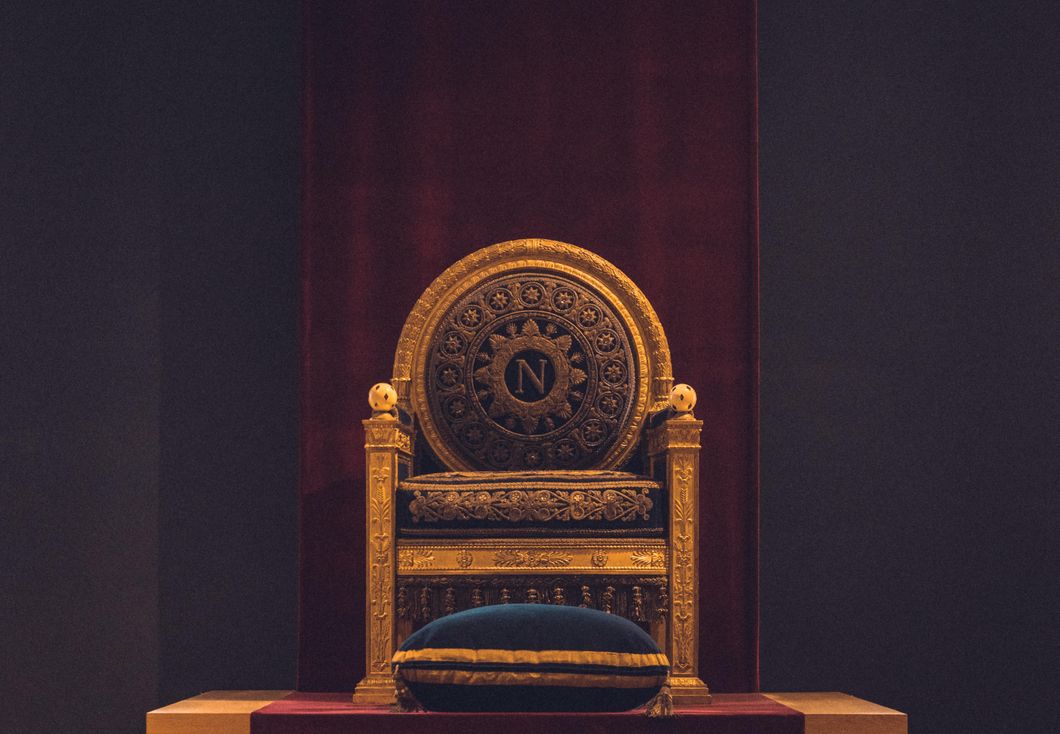In "The Epic of Gilgamesh," the King of Uruk has nearly everything, yet is not sated. King Gilgamesh was wise in all things (Tablet I, ll. 4), ruled a kingdom of which none will rival (Tablet I, ll. 14), was bold, accomplished and mature (Tablet I, ll. 64): yet, one thing eluded his grasp… Immortality. The fulness of Gilgamesh's life led him to harass men in his kingdom (Tablet I, ll. 59), rape women (Tablet I, ll. 65), and behave in a manner that failed to reflect well on his people. The wealth and privileges that Gilgamesh had satisfied neither him nor his subordinates; thus, upon recognizing immortality which eludes his grasp, he goes on a quest which leaves himself with equivocal sentiments of emptiness and hope.
Gilgamesh feels empty in his broad search for immortality which results in a culmination of fear and insecurity in life. The reader is introduced to Gilgamesh's belongings and longings at the start of Tablet I. Gilgamesh was "Exploring the furthest reaches of the earth, seeking everywhere for eternal life…" ( Tablet I, ll. 43-44). Despite Uruk's grandeur, Gilgamesh went as far as he could to gain eternal life. He must have felt as if the life he had was meaningless if he left his kingdom into the rest of the world to find immortality. When Gilgamesh searches for adventure with Enkidu that could potentially establish Gilgamesh's immortality, the quest results in Enkidu's death which grieves Gilgamesh (Tablet IX, ll. 3-5). Gilgamesh is filled with a keener emptiness in life and longs to escape the clutches of death. He is afraid, and in his grief resolves to continue on his quest to visit one who is immortal; Utanapishtim (Tablet IX, ll. 7). Gilgamesh is spurned onward, and the grief from Enkidu's death left him with an increasing feeling of emptiness without immortality accomplished. Gilgamesh uses his grief to propel him to succeed in his quest. While feelings of emptiness spurn Gilgamesh to continue on his quest, he incurs hope which leads him to continue with resolve.
Gilgamesh meets hope which is symbolized by light and descriptors of time on his quest. Gilgamesh first laments the death of Enkidu at the first glimmer of dawn (Tablet VIII, ll. 1-2). Despite his grief, a new day arises upon Gilgamesh. His journey is not over yet, when a new opportunity arises for Gilgamesh to search for and attain immortality. On his quest, Gilgamesh travels through darkness for many hours until "he came out ahead of the sun… [And] bright light still reigned!" (Tablet IX, ll. 75-76). Gilgamesh felt empty: yet, as light emanated around him, he tasted a glimpse of the glory of immortality. The light must have created a sense of relief around Gilgamesh and acted as a drop of water against his parched throat, eager to escape the perhaps not so imminent clutches of death. Towards the end of the epic, the immortal Utanapishtim sends Gilgamesh on his way back to Uruk from his journey and before Gilgamesh takes a passage of time to sail back to where he started, Utanapishtim tells Gilgamesh of a plant that will secure his immortality (Tablet XI, ll. 283-289). As that inevitable passage of time would have led Gilgamesh closer to death in each passing moment, it prompted Utanapishtim to fulfill Gilgamesh's aching for life in the knowledge of a simple object to surpass death. This fills Gilgamesh with hope that his emptiness will be satisfied at last.
While the epic finishes with explaining how Gilgamesh lost the object and was unable to achieve immortality in life, the author explains the solidarity and legacy of the city of Uruk (Book XI, ll. 326-331). Gilgamesh knew what it felt to be empty, at the brink of despair, and he knew what it felt to be hopeful, with the reality of his dreams right at his fingertips. Gilgamesh ultimately finds that he already achieved immortality in what he already had. The legacy of his city would surpass his death. Perhaps immortality is not achieved in life itself, but in the objects reflecting one's life and passions. As Uruk reflected Gilgamesh's great kingship, perhaps the epic's audience can learn that their immortality may be gained by a tangible legacy that they leave behind as well.
















